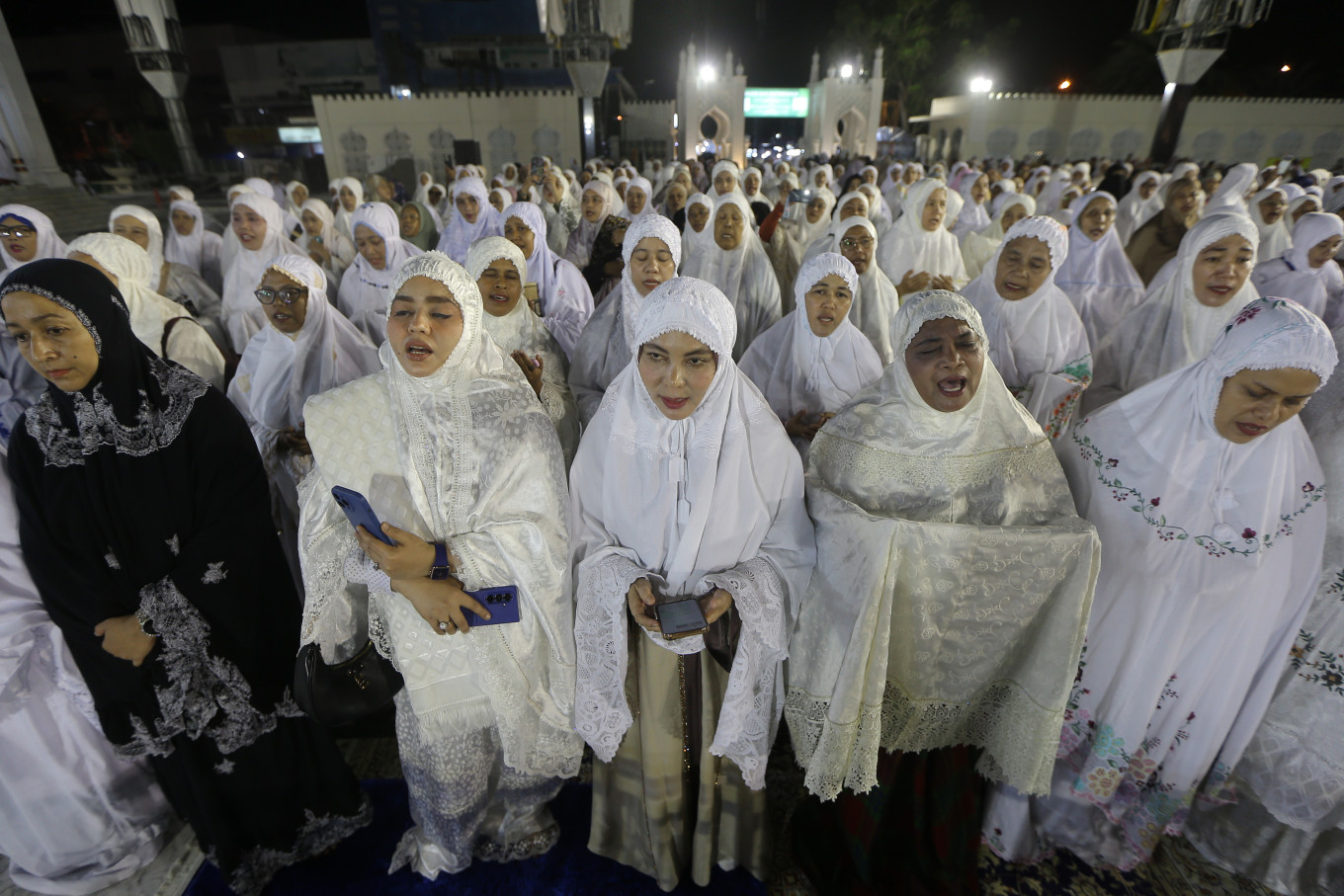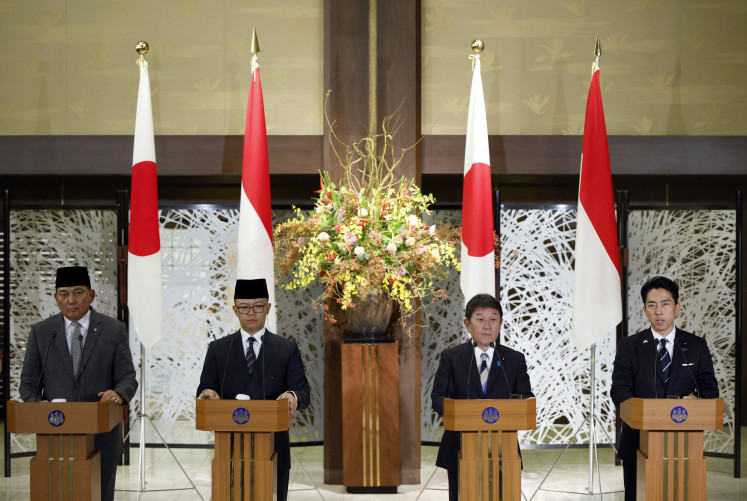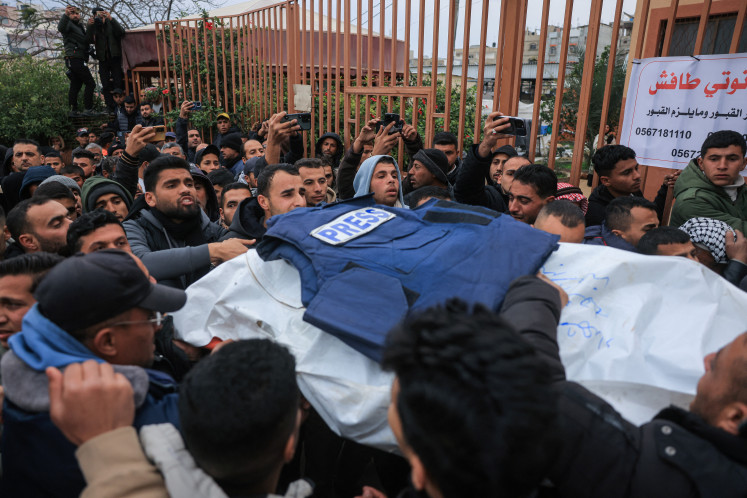Popular Reads
Top Results
Can't find what you're looking for?
View all search resultsPopular Reads
Top Results
Can't find what you're looking for?
View all search resultsAceh’s waqf experiment: When an age-old tradition powers a new economy
Aceh's unique cultural identity and administrative status makes it fertile ground for trialing waqf-based development initiatives that could provide a contemporary model for Islamic economies worldwide.
Change text size
Gift Premium Articles
to Anyone
W
hen Aceh Governor Muzakir Manaf launched the Gerakan Aceh Berwakaf (Aceh Waqf Movement; GAB) in March this year, it was more than a ceremonial move: It was a strategic bet that an ancient Islamic tradition could be revised to address the modern challenges of development and economic growth.
For centuries, waqf, or Islamic charitable endowments, financed mosques, schools, trade routes and social welfare across the Muslim world. In Aceh, a historic Islamic sultanate on the northern tip of Sumatra, waqf shaped the region’s intellectual and religious life.
It is safe to say that waqf has become part of the local lifestyle. As a result, we can easily find many waqf assets created by Acehnese within or outside Aceh.
One of the most famous waqf assets is Waqf Habib Bugak Asyi in Mecca, established in 1809, and the proceeds from that asset are still distributed yearly to pilgrims from Aceh. However, its role has diminished within the larger landscape in recent decades, by state budgets and donor-driven projects.
Aceh is now attempting to reverse that decline. The provincial administration has integrated waqf programs into its Medium-Term Development Plan (RPJMA) 2025-2029 and the Strategic Plan of Baitul Mal Aceh (BMA), the local zakat and waqf authority. This move effectively elevates waqf from a voluntary social practice into a structural component of the province’s development policy.
The GAB framework is ambitious and rests on five pillars: improving literacy and conceptual understanding, reforming regulations, strengthening governance, professionalizing human resources and diversifying sources of waqf funding.
In practical terms, this could mean better-trained waqf managers (nazir), transparent digital platforms, integration with Islamic finance and optimization of new instruments such as cash waqf-linked sukuk and cash waqf-linked deposits.
To signal its seriousness, Aceh will host the Aceh Waqf Summit (AWS) 2025 next month. This is not just a local gathering. Global waqf practitioners from the Middle East, Southeast Asia and beyond are expected to attend, showcasing successful models while exploring collaborations.
The summit is the culmination of a broader campaign that organized various concerted efforts and activities in the lead-up to the event.
In July, a high-level waqf forum convened more than 80 stakeholders from government, academia, finance and civil society. The discussions produced clear recommendations: Align Aceh’s road map with Indonesia’s national waqf strategy, link waqf to the broader Islamic finance ecosystem, adopt digital transparency and develop pilot projects in education, health care and economic empowerment that can be replicated nationwide.
Participants also made a bold proposal: Aceh’s special autonomy should be reflected in Indonesia’s revised Waqf Law, granting the province flexibility to pioneer models tailored to its unique context, just as it already enjoys special authority in zakat management.
One surprising actor in this story is Bank Indonesia (BI). Recognizing the commitment of the Aceh administration, the central bank has drafted a road map for waqf development in Aceh to strengthen the GAB framework. The document outlines strategic goals: building institutional capacity, designing sustainable waqf-based business models and accelerating digitalization.
This is more than bureaucratic alignment. It represents a rare synergy between provincial authorities, national regulators and grassroots stakeholders. If implemented effectively, it could create a blueprint for other regions, not only in Indonesia but across the Muslim world also.
At first glance, Aceh’s waqf experiment may appear local. However, it raises a global question: Can Islamic endowments be modernized to fund public goods in an era of shrinking state budgets and growing inequality?
The Muslim world collectively holds billions in dormant waqf assets – land, property and cash – that are often underutilized. Various countries are exploring reforms, but progress has been uneven. Aceh, with its strong Islamic identity and special autonomy status, might have the flexibility to test new models that others cannot.
If successful, Aceh could demonstrate that waqf is not a relic of premodern charity but a viable instrument for 21st-century development, funding schools, hospitals, renewable energy and even venture capital for start-ups. In other words, the Aceh administration’s initiative could pioneer and shape the future of waqf.
The road will not be easy. Regulations remain complex, professional capacity is uneven and public trust depends on transparency. The private sector must be convinced that waqf-based projects are not only ethical but also economically sound. And success will require balancing local cultural traditions with global financial standards.
Yet, momentum is building. With the GAB embedded in Aceh’s development plans, the Aceh Waqf Summit on the horizon and BI’s road map and support on the table, the province has a rare window of opportunity.
Imagine an Aceh where waqf-financed universities attract students from across Southeast Asia, where waqf-backed hospitals reduce dependency on public budgets, where waqf investment funds support entrepreneurs and where Aceh’s model is studied in Kuala Lumpur, Doha, London and New York.
That future is still uncertain. But the fact that it is even conceivable shows how far Aceh has already come. By reviving waqf as both a spiritual and economic force, Aceh is daring to ask a question with global relevance: Can an old-age tradition power a new economy?
***
Fahmi M. Nasir is the author of Contemporary Waqf Issues in Indonesia; Nezar Patria is second deputy communications and digital minister. The views expressed are personal.











